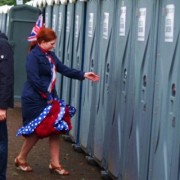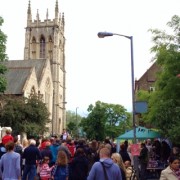For a long time it felt like my job on the council was explaining the council’s parking policy to business. I should add that my job on the council has never involved any responsibility for parking whatsoever (long may that continue) but it is inevitable when talking to businesses that they will raise the impact of parking on their business: it’s impossible to have the council’s economic development role without a good understanding of the dynamics of the council’s parking.
So it is a refreshing change, if not outright relief, to be able to talk about the council’s six-month pilot of reduced parking fees in Tooting. The scheme will see half price (well, £1.10 and not £2.30 per hour) parking in seven roads near Tooting Broadway. The roads currently have spare capacity and the town centre is one that we know does have shoppers travelling significant distances to visit.
I’ve always been fairly agnostic about the impact of parking on business. If you look at places like Westfield, or even Southside, it’s clear that people will pay to park in the right destination and in some cases pay a lot. The centres seem to use parking charges as a way of managing demand (encouraging shopping on quieter days, for example) than increasing demand.
There is always a steady flow of research on the impact of parking policy (the most recent I’ve seen was the British Parking Association’s Re-think! Parking on the High Street (PDF). Generally they have tended to conclude parking does not make that much difference in most cases (although it’s probably the edge cases in which we are interested). Sadly, however, the value of their insight to Wandsworth is limited by the comparative rarity of town centres reliant on on-street parking in residential roads rather than large off-street private or public car-parks.
It’s these residential parking areas in Tooting that are the focus of the council’s latest trial of reduced parking fees. What remains to be seen is what effect this will have on shoppers’ habits. Will more people come overall, or will it merely cause a change in their choice of transport or parking spot?


